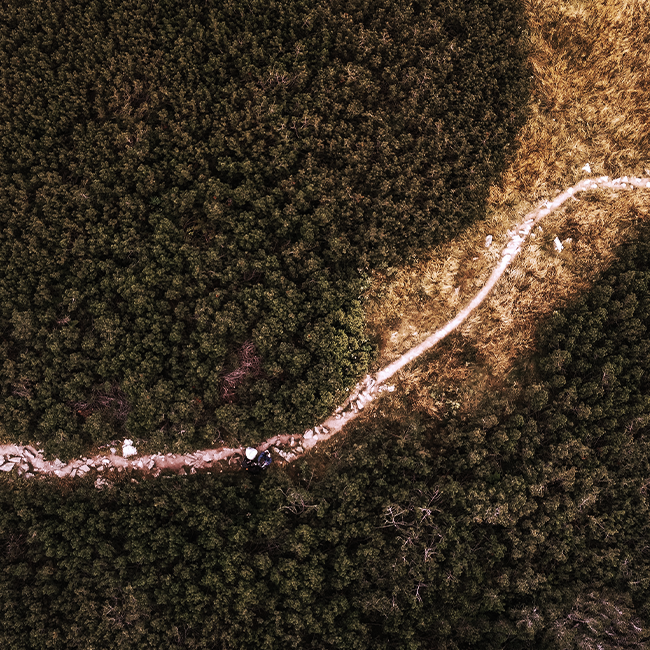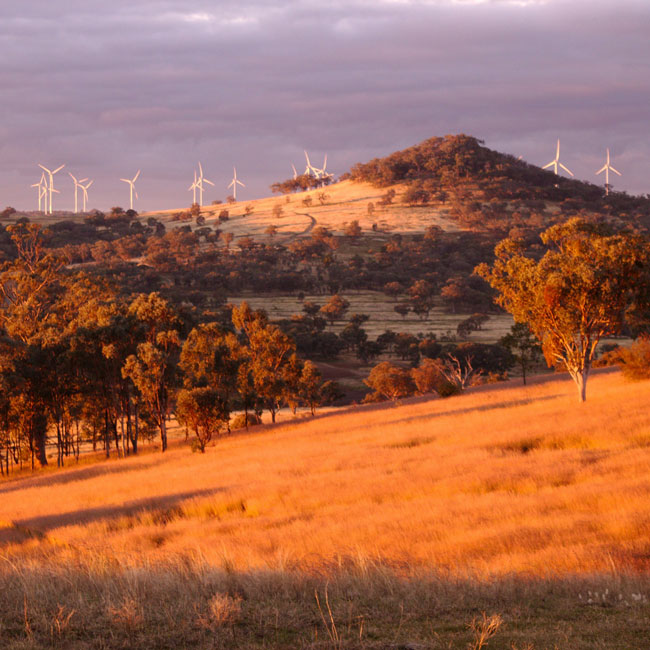Sir Geoff Mulgan on what makes a good leader

Sir Geoff Mulgan on what makes a good leader
Opinion + AnalysisBusiness + Leadership
BY The Ethics Centre 16 NOV 2022
Sir Geoff Mulgan has had a world of careers. Currently Professor of Collective Intelligence, Public Policy and Social Innovation at University College London, Mulgan discusses trust, power and what makes a good leader.
“There’s a risk in any relationship of power that it can amplify your vices as well as your virtues – vices of vindictiveness or meanness, of spirit or dishonesty. And I’m sure there’s some of that in me, probably because of my character faced by pressures and threats I’d be more likely just to run away and resign, rather than to become a sort of evil Adolf Hitler in the bunker type but you certainly see this in many other people.”
Geoff Mulgan has spent his entire career musing over the question: what makes a good leader? And not only that, but how you cultivate those skills and that mindset without becoming …a psychopath. This thinking prompted Geoff to write a book on this subject, in which he critiques the strong traditions within Christianity and Chinese philosophy. He explores the idea that what constitutes a good leader essentially depends on the ethics of the individual – that, if only you could find the right person for the right job everything would go swimmingly… through his vast research and experience, Geoff says this is completely wrong.
“We are creatures of our context. We are far more likely to be good leaders if there are constraints and pressures, if what we do is visible, if there are balancing forces and many people. Even apparently quite good people, if they can get away with things, will get away with those and they may start quite good. But five, ten, let alone 15 years later, if they’re still in power, they become evil monsters and again and again we see that at the global level.”
Are leaders scared of wisdom?
It’s in a leader’s interest to elicit a sense of awe and respect in their followers. They should be in possession of higher knowledge that can justify to those who work for them that they are worthy of that position. According to Geoff, that is why no leader can ever be completely transparent as they need to maintain this sense of mystery about their workings.
“As a leader I think you have to maintain an opacity, a sort of mystery about your knowledge and wisdom. You see it very clearly in how people talk about Putin or Modi or Xi. They wanted to project onto them this sort of genius, brilliant tactical, strategic genius, which we couldn’t understand. It’s sort of beyond comprehension, but we just sit back and admire it.“
And Geoff sees this behaviour amongst business leaders all the time – “the hagiographic magazine articles and books trying to cultivate an aura, a mysterious magical genius around their insights… which then suddenly collapses when the share price drops.”
Declining trust in institutions
When Geoff was working within the British government he said one of the biggest concerns internally was wavering trust in public institutions. As a result, he lead a large scale project under former UK Prime Minister Tony Blair asking the question: what could be learnt from how public institutions had lost and regained trust? He found the learnings for rebuilding trust were simple:
- Publicly acknowledge and apologise when something has gone wrong
- Articulate your moral purpose
- Perform your core function competently
The key positive that Geoff took away from this research was that: the problem of trust and trustworthiness is actually a fixable problem if you acknowledge it clearly and if you have the courage to really deal with it on these three key dimensions.
Is it possible to lead without getting your hands dirty?
“One of the weird things about leadership is you need a dual mind all the time of apparently opposite qualities – arrogance and humility, toughness and sensitivity, which need constantly replenishing and keeping in a balance… And if you drift too far in either direction, you won’t function very well.”
Geoff set up a young leadership training program in the UK, called “Uprising” and he explains the two dualities that he endeavoured to instil in the course which are:
- You have to be tough and have a thick skin. You’ll need to do things that are unpopular and unpleasant like firing people and closing things down and you need to be psychologically prepared to do that.
- On the flip side you also need to maintain your sensitivity, and not allow the aforementioned thick skin to destroy your ability to be kind and virtuous.
The second duality is: arrogance and humility
- Anyone becoming a leader needs to have a sense of arrogance, they need to believe that they are genuinely better than a million other people who could fill the role. Arrogance isn’t a bad thing, it’s a necessary thing to overcome setbacks, the personal attacks, the social media trolling and everything else that comes with being a public figure.
- But you also need to be humble. The humility to constantly learn and be open to new ideas.
In his experience, it is the young leaders who can manage to keep both of these sets of dualities in harmony who are the most successful.
The leaders of the future
We have a difficult few decades ahead of us, one that will be characterised by the accelerating climate crisis, widening inequality, austerity, and increasing inflation. Geoff believes that we will need to elevate the best people into positions of power if we are to emerge from the other side of this tumultuous time unscathed. His biggest fear is that, over the next few years the sorts of individuals who would make excellent leaders will shy away from the job because it’s too risky or too damaging to their private life, or just too difficult, and so we must persuade and elevate these individuals who possess that duality of arrogance and humility to put themselves forward and act.
“At the very heart of leadership is some sense of obligation and service to the whole community you are part of, realising almost everything you have has been given to you by others… Very little is created by yourself. And that gift requires a gift back.”
AUDIO: Listen to the full podcast discussion above
Sir Geoff Mulgan is Professor of Collective Intelligence, Public Policy & Social Innovation at University College London (UCL). He was CEO of Nesta, the UK’s innovation foundation from 2011-2019. From 1997-2004 Geoff had roles in UK government including director of the Government’s Strategy Unit and head of policy in the Prime Minister’s office. Geoff advises many governments, businesses, NGOs and foundations around the world. He has been a reporter on BBC TV and radio and was the founder/cofounder of many organisations, including Demos, Uprising, the Social Innovation Exchange and Action for Happiness. He has a PhD in telecommunications and has been visiting professor at LSE and Melbourne University, and senior visiting scholar at Harvard University.
Find out more about other conversations in the Leading with Purpose podcast. Delve into more articles and podcasts like this by signing up to our Professional Ethics Quarterly newsletter.
Ethics in your inbox.
Get the latest inspiration, intelligence, events & more.
By signing up you agree to our privacy policy
You might be interested in…
Opinion + Analysis
Business + Leadership, Politics + Human Rights
Can philosophy help us when it comes to defining tax fairness?
Opinion + Analysis
Business + Leadership, Science + Technology
5 dangerous ideas: Talking dirty politics, disruptive behaviour and death
Opinion + Analysis
Business + Leadership, Society + Culture
Access to ethical advice is crucial
Opinion + Analysis
Business + Leadership
Businesses can’t afford not to be good
BY The Ethics Centre
The Ethics Centre is a not-for-profit organisation developing innovative programs, services and experiences, designed to bring ethics to the centre of professional and personal life.
Susan Lloyd-Hurwitz on diversity and urban sustainability

Susan Lloyd-Hurwitz on diversity and urban sustainability
Opinion + AnalysisBusiness + Leadership
BY The Ethics Centre 16 NOV 2022
Susan Lloyd-Hurwitz is the CEO of Mirvac, one of Australia’s largest and most respected property groups. Driven by the company’s purpose, to Reimagine Urban Life, Susan talks about how we can redefine the landscape and create more sustainable, connected and vibrant urban environments, leaving a legacy for generations to come.
“When you’re in high school you can only imagine doing the jobs you can see – you can think about being a doctor, a nurse, a lawyer because those jobs exist. But I always say to my own children that the jobs that they’re going to do don’t even exist yet.”
Susan’s parents took a huge risk when they migrated from Belfast in Northern Ireland to Australia, during the Winter of Discontent in 1978 which was characterised by widespread strikes in the public and private sector. At the time she didn’t think much of it, but upon reflection admires the sacrifices her parents made to give her a better life. First in her family to attend university, Susan completed an undergraduate law degree, but upon completion the notion of being a full time lawyer didn’t appeal to her. Deciding to study urban geography, completing a thesis on the migration of Icelanders to Australia, she says it was this rather left field thesis that set her on the path to become the CEO of Mirvac.
“In one of those moments of serendipity I called my university supervisor and said “what does someone like me do for a job?” And he said he’d had a call that very day from Knight Frank, who were looking for a researcher. And I thought, I don’t know the first thing about real estate, but I can analyse, I can write, so why not? And I jumped into real estate and 30 plus years later I’m still in the industry, having worked all around the world for iconic companies. And it was all just that one moment, one phone call to my supervisor launched me off in this direction.”
Striving for a more diverse workplace
“At Mirvac I have tried very hard to ensure we are as gender diverse as possible, and not just gender diversity, gender is just one element of it – we have a full diversity and inclusion effort going on all the time.”
The academic research into diversity is clear: diverse groups make better decisions than homogeneous ones. It’s proven across cultures, across times and across industries. Susan believes that business leaders must be absolutely conscious at all times about diversity within their work force, because if you don’t play close attention, people default to the practice of hiring those most like them. The problem is, that while some elements of diversity are easily marked, diversity of ideas and thought is a lot harder to measure, she says, “it’s not just about having 50% females at the table, it’s a lot deeper than that. You can only measure the things that are obvious, like cultural background or sexual orientation or gender. You can measure those things, and just hope that they all bring some diversity of thought.”
“I’m very, very proud that at Mirvac we have a zero like for like gender pay gap and have maintained that for six years. And it is very hard to maintain if you if you take your eye off for one minute, the gender pay gap, with all the best intentioned in the world comes creeping back into the organisation.”
What keeps Susan Lloyd-Hurwitz up at night?
“The pace of house price growth is simply unsustainable, many multiples of times greater than wage inflation, which is very anaemic. So it is something that does need urgently to be addressed.”
Housing affordability is one of the most important challenges of our time, and Susan believes the problem lies with supply, “We simply don’t do enough dwellings for the growth of household formation in this country. It is a very serious problem and better or worse in different parts of Australia.” When thinking about solutions to the housing crisis and how we might build the cities of the future, Susan has proven that she thinks very much outside the box, conceiving of the idea of “a house with no bills”. “Imagine if you could live in a house and never pay another energy or water bill. Wouldn’t it be transformational for millions of people. What if we could design a different way of building homes so that we were creating no waste?”
A shift towards a more sustainable future
“The business of business is not just business. It is a lot broader than that. People sign up for a noble mission.”
Ten years ago when Mirvac launched the “This Changes Everything” sustainability strategy, with the goal of being net positive in waste water energy by 2030 (without yet having the technology to do so) people thought she was mad. “senior members of industry said you should never set targets that you don’t know how to meet”. Despite the opposition, Susan doggedly pushed on, and fast forward to 2022, Mirvac is now net positive in scope one, and in scope two emissions are 9 years ahead of schedule. She speaks about how rapidly the notion of sustainability is changing at every level of business from the C-suite to the consumer, “our residential customers who ten years ago, if you were talking to them about sustainability upgrades in their home or apartment, they would hear corporate spin and greenwash. And now they buy sustainability upgrades because they have a desire to live in a more impactful way and with a better impact on the planet.”
“Mirvac people generally don’t wake up in the morning and think, I’m going to go generate some earnings per share today. But they do get up in the morning and think about the legacy that they’re going to leave, how they’re going to push forward design and how they’re going to think about how we can design out our waste from our sites. Those are the things that get Mirvac people motivated, and they’re an extremely passionate group of people dedicated to leaving the world a better place than when we found it.”
AUDIO: Listen to the full podcast discussion above
Susan Lloyd-Hurwitz was appointed Chief Executive Officer & Managing Director in August 2012 and a Director of Mirvac Board in November 2012. Prior to this Susan was Managing Director at LaSalle Investment Management. Susan has also held senior executive positions at MGPA, Macquarie Group and Lend Lease Corporation, working in Australia, the US and Europe.
Susan is a Director of the Business Council of Australia, member of the NSW Public Service Commission Advisory Board, a member of the INSEAD Global Board, a Trustee of the Australian Museum Foundation, and the immediate past Chair of the Green Building Council of Australia. She holds a Bachelor of Arts (Hons) from the University of Sydney and an MBA (Distinction) from INSEAD (France).
Find out more about other conversations in the Leading with Purpose podcast. Delve into more articles and podcasts like this by signing up to our Professional Ethics Quarterly newsletter.
Ethics in your inbox.
Get the latest inspiration, intelligence, events & more.
By signing up you agree to our privacy policy
You might be interested in…
Opinion + Analysis
Business + Leadership
Explainer: Getting to know Richard Branson’s B Team
Opinion + Analysis
Business + Leadership, Relationships
What makes a business honest and trustworthy?
Opinion + Analysis
Business + Leadership, Politics + Human Rights
Vaccination guidelines for businesses
Opinion + Analysis
Business + Leadership
Why the future is workless
BY The Ethics Centre
The Ethics Centre is a not-for-profit organisation developing innovative programs, services and experiences, designed to bring ethics to the centre of professional and personal life.
Tim Walker on finding the right leader

Tim Walker on finding the right leader
Opinion + AnalysisBusiness + Leadership
BY The Ethics Centre 16 NOV 2022
Tim Walker was Former Chief Executive and Artistic Director of the London Philharmonic Orchestra for over twenty years. Balancing its long and distinguished history with a reputation as one of the UK’s most adventurous and forward-looking orchestras, Walker discusses what it takes to grow a profitable business and find the right leader.
Tim Walker was nine when he started learning how to play the piano, and it was only upon attending his very first orchestra, that he realised how much more fun it was to play with other people. So that night, when he arrived home Tim promptly begged his parents to let him start learning the violin too. As a child, Tim was part of the youth orchestra at school, but after a while found it wasn’t really for him… but it was the notion of managing an orchestra, a job which still had that sense of creativity and community which had stolen his heart.
Finding the right leader
“Yes the conductor holds the musicians together but he or she is also using his or her knowledge and intellect to take the written note of the composer and turn it into something that communicates with us in the audience in a very visceral sense, I would say, because it’s not only something that should hit the heart, I think it also needs to hit the head as well.”
While the musicians in the London Philharmonic Orchestra are some of the most talented in the world, it’s the addition of the right conductor that really helps the players shine. The conductor’s role is to unify all the players to one single interpretation of the music, and while the experience of being in a symphony is entirely collaborative, someone needs to ensure everything is flowing seamlessly. But finding the right person for the job hasn’t always been easy. Traditionally in the 19th and 20th centuries, it wasn’t uncommon for a conductor to lead with an iron fist, however as times have changed, so too have conductor styles.
Growing a profitable business
“Interestingly, the London Philharmonic is one of the few orchestras in the world that actually made money from international touring.”
Before Tim joined the London Philharmonic, the company was solely focused on pursuing profit – the board justified each decision by demonstrating how it would contribute to the bottom line. According to Tim, many people make the mistake of thinking just because the individual elements of an enterprise can pay for themselves, then the sum total will be a sustainable enterprise. However, Tim says there are some avenues that need to be pursued not because they generate profit, but rather because doing those things positions the orchestra for the future. As a result, under Tim’s guidance the London Philharmonic recorded all the national anthems for the London Olympics and played at the Queen’s jubilee, not because they were profitable – but because they intrinsically felt like the right thing to do.
Do people still care about orchestras?
“I think, the people do take for granted a lot of the music in their lives as being sort of like wallpaper. I remember when I was talking to somebody who may not know the London Philharmonic, but as soon as I say we recorded all the soundtracks for The Lord of the Rings, suddenly they understand… But they don’t really.”
Over Tim’s twenty year tenure as Artistic Director and Chief Executive of the London Philharmonic, he reveals the hardest part of the job was just keeping everything going. The dilemma is though some would argue that enjoying art is a necessity, music is not the equivalent of food and basic services, so the purchasing of a concert ticket is something that in times of financial stress slows or stops altogether. “You can’t let the institution die on your watch… you’re responsible for 150 full time and 75 part time employees all dependent on ensuring that they can pay their mortgages and put bread on the table.”
Tim highlights that these last few years with COVID-19 have been particularly challenging as audiences are not flocking back as they had hoped.
Tim believes the way to forge a path out of the pandemic is to remind audiences that real people are making this music. The need for live music will never go away, but when you have 200 people whose livelihoods rely on ticket sales, then large orchestras won’t be around for a long time unless we start buying tickets.
“When you care for something, you’ve also got to care for how it’s maintained. So there needs to be a cost to care. And the care for orchestras is in people making the effort to actually go to concerts and appreciate what they have.”
AUDIO: Listen to the full podcast discussion above
Timothy Walker CBE AM Hon RCM was Chief Executive and Artistic Director of the London Philharmonic Orchestra. He was formerly the founder and Chief Executive of World Orchestras and prior General Manager of the Australian Chamber Orchestra. Mr Walker was on the Board of the International Society for the Performing Arts and was Chair of the Association of British Orchestras.
He was an inaugural member of the Australian International Cultural Council, and has served as a director of the London Philharmonic Orchestra, the Henry Wood Hall Trust and the Rachmaninoff Foundation.
Mr Walker has an honours degree in Arts, a Diploma of Music and a Diploma of Education from the University of Tasmania and a Diploma of Financial Management from the University of New England. He has been a consultant to the Australia Council, Create NSW, Creative Victoria, The Australian Ballet, the Australian Festival of Chamber Music, the Tasmanian Symphony Orchestra, the Sydney Conservatorium of Music and the Orcquestra Sinfonica do Estado de Sao Paulo.
Find out more about other conversations in the Leading with Purpose podcast. Delve into more articles and podcasts like this by signing up to our Professional Ethics Quarterly newsletter.
Ethics in your inbox.
Get the latest inspiration, intelligence, events & more.
By signing up you agree to our privacy policy
You might be interested in…
Opinion + Analysis
Business + Leadership, Health + Wellbeing, Relationships
Ending workplace bullying demands courage
Big thinker
Business + Leadership
Big Thinker: Karl Marx
Opinion + Analysis
Business + Leadership
How ‘ordinary’ people became heroes during the bushfires
Opinion + Analysis
Business + Leadership
The sponsorship dilemma: How to decide if the money is worth it
BY The Ethics Centre
The Ethics Centre is a not-for-profit organisation developing innovative programs, services and experiences, designed to bring ethics to the centre of professional and personal life.
Roshni Hegerman on creativity and constructing an empowered culture

Roshni Hegerman on creativity and constructing an empowered culture
Opinion + AnalysisBusiness + Leadership
BY The Ethics Centre 16 NOV 2022
Roshni Hegerman is one of the most awarded strategic thinkers globally. Currently JPAC Market Maker and Experience Director across sustainability and people with Oracle, she discusses creativity, psychological safety and how to construct an empowered culture.
When Roshni was a little girl growing up in India, she didn’t have dreams of being an executive or a director, she had much more humble aspirations to be a social worker. Though her parents didn’t feel it was a career path that could support a family long term, Roshni had her heart set on working with people at a local level.
With this in mind, she studied sociology and psychology in college, but then drifted into journalism and communications, which is where her marketing and communications career really begun. Although, she never did realise the goal of becoming a social worker, the ethos of social work and community has informed all of her decision making she says, “I get realy excited by the power of ideas and how they can connect with people and actually drive either a shift in perception or a shift in behaviour or give people a different lens to kind of view the world through that they wouldn’t have typically viewed it through.”
Be a radiator, not a drain
“I think that the traditional sense of creativity probably isn’t as valued as it could be. I think the use of creativity is to innovate and to do things differently and to think about how you’re going to connect in and change things in a positive way. So from that perspective, I actually think that creative thinking is the only thing that cannot be automated.”
Roshni believes that in the modern workplace, as we shift full speed into the world of automation, creativity and the capacity to think outside the box will actually be the most important skill set for young leaders and changemakers of the future.
One of the things that has stuck with her throughout her professional career is to “be a radiator not a drain”. Rather than be a drain she says, sucking the energy out of the room by sticking to the rules and following traditions, we should be radiators – empowering others, generating ideas, and inspiring new ways of thinking. “I think people are starting to realise that if you’re going to continue to do the same thing and get the same result, and the end and it’s not a positive one, then something has to change.”
Roshni often reflects on her professional practice asking a few key questions:
- How can I use my influence to be more of a radiator?
- Is there a more interesting or different direction we could consider?
- What’s stopping us from being more passionate about a project?
- How can I generate enthusiasm in my team?
- Embrace new and innovative ideas
She suggests that if you can be more of a radiator in your workplace, then people will naturally gravitate towards you, there will be less resistance to your ideas.
People who feel safe have the best ideas
“It’s when you feel like you have to meet a quota and you have to get something done that you tend to revert back to what you know and you don’t feel safe to kind of go out of that box and try something different. It’s when you have an organisation where employees feel safe to kind of give something a go and they’re empowered to be able to do that.”
In order to truly embrace one’s inner radiator, one must feel safe and confident within their team to share their ideas without fear of criticism.
Throughout her career, Roshni has explored the idea of psychological safety in the workplace environment. She suggests as leaders it’s important to create a space of safety in the workplace that allows people to feel more open to being more vulnerable whilst confident enough to have their ideas challenged.
She says, “I think it is very important to create an environment where where you don’t feel threatened by the ideas that you have. There needs to be an environment that allows you to feel at ease with sharing kind of a strong point of view, regardless of which direction you come from.”
Roshi works hard to identity the natural unconscious biases that stop team members from being curious because they believe they already know the answer. She emphasises that it’s important to consciously ask pointed questions and embed curiosity and innovation into every element of organisational structure and process in order to force people to look at things from a different perspective.
“I think it helps create a culture of discovery, empathy, curiosity, and opens up different possibilities of pathways that could be considered. So that’s one of the things I feel really excited by is going, ‘how do we consciously think about these things and what can we do to ask the right questions so that we are having the right conversations so that we can engage people’s curious mind to think about things differently?”
Contributing to a better world
“You need to be willing to have a lived experience. You can’t just say that you care about indigenous people or homeless people. You need to see it from their perspective and understand what they’re going through in order to be able to help in the way that they need you to help them, not how you want to help them.”
Despite diverting from the pathway to a career in social work all those years ago, Roshni maintains that the notion of caring for others and celebrating a sense of community has never left her. It’s important to consider the lived experience of different people, rather than assume what people need, you should strive to constantly be out in different communities and speaking to people directly in order to enrich your own perspective.
Roshni suggests it all comes down to realising that at the end of the day, we are all humans who want to be treated with dignity and respect. She believes in giving those who are underrepresented a voice, and a platform so they can get the help that they need. Her advice for the business leaders of the future is: It’s important to understand that it’s not all about you, that the world is about others, that you occupy it with. So how can you actually help make things better, not just for yourself, but for the people around you?
AUDIO: Listen to the full podcast discussion above
Roshni Hegerman is a force of nature with an unstoppable passion to move businesses and people, creating positive impact and change. Roshni currently is JAPAC Market Maker, Experience Director, with Oracle across Sustainability and People; and is founder of her own strategic creative consultancy, PinchofMasla. Roshni is global citizen unafraid of traversing new and unchartered terrain, in fact she relishes in it – working and thriving in United States, China, India and now Australia – with three beautiful children in tow. Roshni helped launch the iPhone in China, start-up BBH and BBDO in India; grow Coca-Cola’s footprint across Asia.
Roshni is a champion for diversity and inclusion and one of the most awarded strategic creative thinkers globally. She has started her own Women in Leadership networking group – “Ladies that Lunch,” to bring like-minded female leaders together to make meaningful change and collaborates closely with Igniting Change and Campfire X, tiny but meaningful organisations that spark big positive change. Roshni launched “Creating Meaningful Change” while at McCann Australia, a 365-day initiative, that puts conscious inclusion at the centre of the agency’s strategic and creative operating system.
Roshni believes that magic is found in the intersection of humanity, creativity and technology.
Find out more about other conversations in the Leading with Purpose podcast. Delve into more articles and podcasts like this by signing up to our Professional Ethics Quarterly newsletter.
Ethics in your inbox.
Get the latest inspiration, intelligence, events & more.
By signing up you agree to our privacy policy
You might be interested in…
Reports
Business + Leadership
Managing Culture: A Good Practice Guide
Opinion + Analysis
Business + Leadership, Relationships
Treating citizens as customers is a recipe for distrust
Opinion + Analysis
Business + Leadership
Banks now have an incentive to change
Opinion + Analysis
Business + Leadership, Politics + Human Rights
Can philosophy help us when it comes to defining tax fairness?
BY The Ethics Centre
The Ethics Centre is a not-for-profit organisation developing innovative programs, services and experiences, designed to bring ethics to the centre of professional and personal life.
Sylvie Barbier and Rufus Pollock on failure and fostering a wiser culture

Sylvie Barbier and Rufus Pollock on failure and fostering a wiser culture
Opinion + AnalysisBusiness + Leadership
BY The Ethics Centre 16 NOV 2022
Sylvie Barbier and Rufus Pollock are the partners in business and life who strive to build wiser future through culture, space and community. With a unique and innovative approach to business, the pair uncover the realities of being a leader, the importance of failure and fostering a wiser culture.
As a performer, Sylvie Barbier has a real passion for community. Her work is a tenacious exploration of the idea of “art as a conversation” and it’s these thematics of life, discussion, and unity which has equipped her to establish the Life Itself initiative. Together with her partner Rufus, a creative technologist and economist, the two have built a collective based in the half way space between Silicon Valley and the Plum Village in the South of France, which is engaged with creating a weller and wiser world.
On defining leadership
“There is an incredible thirst for leadership, not necessarily leaders – but for leadership.”
The world is in a moment of transition. There is an impending climate crisis, widening inequality as well as a huge amount of disunity and civil unrest, and Rufus believes that we must harness this specific moment in time to interrupt our current archaic notions of what constitutes a leader to craft something new and innovative. He suggests, “we are at a cultural moment where leadership is badly needed, but hugely undermined in part because of these past traumas that we are healing from.”
The reality of being leaders
“There’s always going to be a problem, you’re either not doing enough, or you’re doing too much and being oppressive.”
Having led multiple different initiatives through tech, art and community, both Sylvie and Rufus have learnt a lot about the process of leading. Now that they jointly lead Life Itself, they are encountering a whole new suite of hurdles and challenges as part of running the collaborative residency programs. The programs bring a collection of thinkers, creators, technologists and spiritualists together over an extended period to time to debate and engage with the challenges of the modern world.
Rufus says the hardest part is finding the balance as a leader, “invariably after three months there is some sort of crisis – someone is imposing too many rules, someone has to cook too often – and ultimately you are trying to facilitate the group to engage in a transformation and face these issues, what people must learn is that we need to engage with failure. We have an allergy to failure, but it’s these breakdowns which are the most valuable.”
When leaders fail
Capitalist culture dictates that when a company has some major failing – it is generally the CEO who must hand in their resignation. That the decks must be cleared for fresh blood and new ideas to flush out the old. However Rufus fears we may have gone too far, suggesting that we’ve descended into conducting “ritualised executions” when we decide someone needs to take the blame – just because the leader has left their position doesn’t mean the company will be any better off. Rufus suggests that it’s important to identify the source of the problem, and to think about the duties and responsibilities of leaders more holistically.
In reflecting on their own careers both Rufus and Sylvie acknowledge that they have made some mistakes, and at times mismanaged things. As he continues to learn about leadership, Rufus has let go of trying to achieve everything himself, saying, “leadership is about creating a space in which other people can flourish. I think more and more for myself, based on a huge number of errors, it is the act of creating space versus doing it myself which is central.”
Sylvie agrees, adding her biggest obstacle was she had a tendency to pursue ideals without being grounded in the reality of the world and the reality of who she is. She explores her issues with reconciling these two ideas, “sometimes I felt that the vision I had almost became a burden because it was my responsibility to make it happen. And if it doesn’t happen it’s my fault.”
In the past she was characterised by the ruthless pursuit of intangible goals, but found she was ultimately dissatisfied with this way of leading because when she achieved these goals she would immediately need to move on to something else and it felt particularly dissatisfying.
She concludes, “the world is already perfect the way it is, it doesn’t need to be any different than the way it is right now. And in a moment of radical acceptance, I realised I was already in paradise.”
AUDIO: Listen to the full podcast discussion above
Sylvie ‘Shiwei’ Barbier is a French-Taiwanese performance artist, entrepreneur and educator. Her work synthesizes Eastern and Western philosophies and aesthetics. She co-founded Life Itself to build a wiser future through culture, space and community. Her performance art pieces are contemporary rituals, where the audience is invited to take an active and interactive role. She uses language such as Koans as a bridge for the mind into the spiritual realm, by pushing us beyond the bounds of the intellect into a space of greater wholeness and connection.
Rufus Pollock is a technologist, entrepreneur, writer and long-term zen practitioner. He is the founder of Open Knowledge, an award-winning international digital non-profit. Formerly a Shuttleworth Fellow, Ashoka Fellow and a Mead Fellow in Economics at Cambridge University. His book the Open Revolution sets out a vision for a open, free and free information economy and has been translated into multiple languages. As a co-founder of Life Itself he brings curiosity and rigour to ongoing inquiry into how we can create a radically wiser, weller world for all.
Find out more about other conversations in the Leading with Purpose podcast. Delve into more articles and podcasts like this by signing up to our Professional Ethics Quarterly newsletter.
Ethics in your inbox.
Get the latest inspiration, intelligence, events & more.
By signing up you agree to our privacy policy
You might be interested in…
Opinion + Analysis
Business + Leadership
Feel the burn: AustralianSuper CEO applies a blowtorch to encourage progress
Opinion + Analysis
Business + Leadership
The dangers of being overworked and stressed out
Opinion + Analysis
Business + Leadership, Society + Culture
There’s something Australia can do to add $45b to the economy. It involves ethics.
Opinion + Analysis
Business + Leadership, Relationships
What makes a business honest and trustworthy?
BY The Ethics Centre
The Ethics Centre is a not-for-profit organisation developing innovative programs, services and experiences, designed to bring ethics to the centre of professional and personal life.
John Elkington on business sustainability and ethics

John Elkington on business sustainability and ethics
Opinion + AnalysisBusiness + Leadership
BY The Ethics Centre 11 OCT 2021
John Elkington is a world authority on corporate responsibility and sustainable development. Elkington sat down with The Ethics Centre’s Simon Longstaff to chat about the future of business sustainability.
“I first got involved in the business world in the mid-70s, at a time when business really didn’t want to talk to people who were self-described environmentalists or anything like that. And yet I was an environmentalist.”
John Elkington believes his admiration for the natural world began when he was six or seven. He found himself alone in the middle of a field in Northern Ireland at night, in complete darkness, and to his surprise he looked down and his feet were surrounded by tens of thousands of baby eels. “I put my hands down in the dark and had these things wriggling through my fingers. And I had one of these sort of absolute panic attacks followed by something really quite profound, which has never left me somehow,” he says. “It was a sense of connection.”
Audio: Listen to John Elkington talk about his childhood experiences.
John Elkington has dedicated his professional career to corporate responsibility and sustainable development. In the early 80s, he set up a company called Environmental Data Services, and within 18 months was helping major companies write their first environmental policy statements. His idea was: you can make or save money by doing the right thing on resources and environmental protection. “Even if you’re a small or medium size enterprise you can have a catalytic effect,” he says. “But by the time you get to the size of an Exxon Mobil or a BP or a Shell then you really are having major economic impacts.”
John Elkington on the corporate responsibility movement.
“I think for the last 40 years, business has been encouraged to be more responsible. More transparent and more accountable. The responsibility agenda continues to evolve and expand. And now we’ve got wealth divide on the agenda. We’ve got public access to health care issues. We’ve got tax evasion – more and more issues are coming in which companies are going to have to deal with.
“But the problem is that the whole corporate responsibility movement, of which I’ve been part for so long, has failed in the sense that the systems that we depend on are all wobbling. Our economies are coming apart at the seams – our governments, the political systems, are doing the same. Our societies are under challenge and the biosphere is wobbling in a way that we haven’t seen for a very long time. So corporate social responsibility, as much as I love it, isn’t working.
“Our generational task now is economic, social, environmental, political and cultural regeneration. And the problem is that our current political classes weren’t trained for it. They talk about recovery, but they mean how can we get back on the previous set of rails? And I think the debate now has to be very different.”
Audio: John Elkington talks about the path ahead for corporate responsibility.
Is John Elkington optimistic about the future?
“I think people are increasingly aware that the old order can’t hold, things are coming apart and that’s not going to stop just because we have a new American president. We put on a conference in London in 2020, called the Tomorrow’s Capitalism Forum, and the tagline was “step up or get out of the way”. Now, if you’re in coal that’s not an idea you’d like to embrace if that’s your business. But I think we have misread the urgency of the sort of cataclysmic system changes that are coming towards us. It’s like a tsunami. And it’s very difficult to ride a tsunami. I think we’re now faced with the consequences of what we and previous generations have been doing since the industrial revolution, at least. And we have a very, very short period of time in which to get our act together.”
“I think at the moment, business leaders and some finance leaders are proving more interesting than many political leaders. But this is a political challenge and the politicians have to wake up and get involved.”
Audio: hear John Elkington talk more about tackling climate change.
What keeps John Elkington awake at night?
“We need system change and cultural shifts, which the older generations are going to find profoundly dislocating. One of the things that worries me more than almost anything else is the intergenerational dynamics in all of this. In so many parts of the world you have very rapidly aging populations, and an aging population takes people increasingly to conservatism because they’re only investing for a shorter period of time. So I think there’s a real potential for anger to build up in younger populations. I’m surprised we haven’t seen more of it.”
“I’m 71 but oddly, I feel the next 15 years are going to be the most exciting of my life and the most challenging and the most dangerous politically.”
“We’re in a time of immense turbulence and people will suffer. There will be conflicts, tensions and stresses, which at times will be off the scale. But at the same time I think this is the most exciting period in our collective history, probably for hundreds of years. I’m very excited about the potential because I think it is when old systems come apart that the potential to drive systemic change goes off the scale. So the challenge for leadership I think is immense. And I think in many ways universities and business schools are not yet properly preparing people for that new world.”
John’s advice for future business leaders:
- Get out of your comfort zones and be exposed to different realities.
- Challenge your sense of who you are and what you should be doing.
- Question whether the systems you work in are still fit for purpose.
Audio: Listen to the podcast of John Elkington’s full discussion.
John Elkington is a world authority on corporate responsibility and sustainable development. He is currently Founding Partner and Executive Chairman of Volans, a future-focused business working at the intersection of the sustainability, entrepreneurship and innovation movements.
This episode was made possible with the support of the Australian Graduate School of Management, in the School of Business, at the University of New South Wales. Find out more about other conversations in the Leading with Purpose podcast.
Get more articles and podcasts like this by signing up to our Professional Ethics Quarterly newsletter here.
Ethics in your inbox.
Get the latest inspiration, intelligence, events & more.
By signing up you agree to our privacy policy
You might be interested in…
Opinion + Analysis
Climate + Environment, Business + Leadership
We’re in this together: The ethics of cooperation in climate action and rural industry
Opinion + Analysis
Business + Leadership
‘Hear no evil’ – how typical corporate communication leaves out the ethics
Opinion + Analysis
Business + Leadership
Taking the bias out of recruitment
Opinion + Analysis
Business + Leadership, Politics + Human Rights
No justice, no peace in healing Trump’s America
BY The Ethics Centre
The Ethics Centre is a not-for-profit organisation developing innovative programs, services and experiences, designed to bring ethics to the centre of professional and personal life.
Holly Kramer on diversity in hiring

Holly Kramer on diversity in hiring
Opinion + AnalysisBusiness + Leadership
BY The Ethics Centre 11 OCT 2021
Holly Kramer, Non-Executive Director on the Boards of Woolworths and Fonterra Group, and Pro Chancellor at Western Sydney University, sat down with the Ethics Centre’s Simon Longstaff to chat about the future of business sustainability.
Holly Kramer believes that responsible management has grown in significance exponentially over the last five to ten years. She suggests the old Milton Friedman view of shareholder primacy is a thing of the past, and shareholders are now holding businesses to account and demanding they do the right thing for society.
“There’s a spectrum of different approaches to business stewardship,” she says. “There are those people who don’t understand the way the world has shifted in its attitudes toward corporate responsibility at all. There are those who do understand and “do the right thing” because they know that’s what’s expected of them, and then there are those who do the right thing because it’s simply the right thing to do.”
In the past, business decisions were generally made through the lens of profitability, and the time frame was – at most – a three year view; whereas today, management and boards must take into account the impact of their decisions on multiple stakeholders over longer time horizons, which can sometimes make those decisions seem more challenging.
“Companies are trying to change their metrics of performance. In many companies I’m involved with, you’re measured on financial and non-financial measures; and there is consideration of not just what you’ve achieved but how you’ve gone about it. They’re sometimes called “softer” skills or metrics, but I don’t agree with that characterisation. Acting sustainably requires a broader skill set and tough decisions. A new generation of business leaders are coming through, and they believe it’s important for businesses to be sustainable on every dimension – including diverse and inclusive workplaces, climate friendly practices, meaningful community engagement and leading with purpose.”
“At the end of the day, it’s critical that you hire the right people, people who understand that the decisions they make have a broader impact than just the bottom line. That’s what’s going to make the biggest difference for your business in the long run.”
Audio: Listen to Holly Kramer chat about reconciling doing the right thing with remaining profitable.
Holly Kramer on her career challenges.
“When I was in the telecommunications industry, there was a lot of money to be made from complexity. There were multitudes of calling plans; customers usually struggled to figure out what was the right solution for them. Customers told us that they wanted simplicity. Yet every time we looked at how to make them more simple, we couldn’t make the business case stack up. And so there were often internal struggles within the organisation. We were told: ‘look, if you do this, it will be an NPV negative business case, so we just can’t do it’.
“And while we battled with one another internally, ultimately what happened was that the competitors got there first, gave customers what they wanted and we lost market share as a result. I’ve always believed that when, on first glance, the numbers may not stack up, ultimately either competitors or customers will have the final say.”
Holly Kramer on responding to consumers.
Holly Kramer got her start in marketing, and she leveraged that skill when she started running an affordable fashion brand, so she was well aware that for a business to be successful it must reflect changing consumer needs. “Our starting point was to try and understand our customers as well as we could. Lots of research, lots of personal interaction. We learned early on, for example, that the industry’s idealised version of clothing models – young, skinny, and not diverse – didn’t resonate at all with our customers. They wanted to see the clothes look good on people that looked like them. And to feel good about themselves without the industry defining beauty for them.”
The problem with fashion supply chains.
Simon: “The fashion industry is now having to deal with the question of supply chains. There’s the modern slavery legislation, there’s a consciousness about environmental, social, a range of different issues, but I’m particularly thinking at the moment in the fashion industry where people were selling things like a $1 t-shirt – I really don’t know how anyone can think it’s possible to produce something for so low a price without it having adverse effects for the labour standards in the countries where they’re produced. And I think you encountered some of this during the time you were in the industry?”
Holly: “I was in the fashion industry … when the Rana Plaza tragedy happened in Bangladesh, which focused a lot of the world’s attention on human rights and ethics in the supply chain. However, I was working for a business in Australia that was owned by a parent company in another country. They were from a disadvantaged part of the world that had different standards for what was acceptable practice. And I remember getting challenged about our sourcing decisions because they (the parent company) simply had different standards and priorities than we did. But we had to do what we thought was right and also be consistent with community standards in Australia, where it was important to ensure fair employment practices were maintained in the companies who supplied us.
“The other issue was that a lot of the companies, to mitigate their reputational risk, just pulled their business out of Bangladesh. The problem with that is that you put jobs at risk in countries where the employees are most vulnerable. We had to ensure that our business was commercially viable, but also that we were doing the right thing by the countries we were sourcing from. It’s important to remember that there are no simple solutions. Companies need to consider the outcomes from a number of different angles.”
Audio: Listen to Holly chat about grappling with the ethics of fashion supply chains.
On accounting for diversity.
Over her decades working in the business sector, Kramer has seen boardrooms grapple with the idea of diversity and representation. “Gender is just one proxy for diversity,” she says. “It’s a starting point and it’s easy to measure.”
Kramer believes true diversity lies in having an array of people contributing ideas and solutions and having an environment where different ideas are welcomed. “It’s definitely important, but I don’t necessarily see gender as the most important starting point for diversity. I find it is usually cognitive diversity. Introverts and extroverts. People who like data and people who use intuition. Risk takers and those who are more risk averse. She says she’s always looking for new people who think differently to her because it makes good business sense. Gender is important, and thankfully business has made a lot of progress in that space, but Kramer feels there needs to be ethnic diversity, socioeconomic diversity, as well as generational diversity, which is just as important to achieve.
Holly’s advice for emerging leaders:
- Doing the right thing is good business
- Approach challenges with a long-term lens
- Put yourself in the position of your customers
AUDIO: Listen to the full podcast with Holly Kramer here>>
Holly Kramer is a Non-Executive Director on the Boards of Woolworths and Fonterra Group, and she is Pro Chancellor of Western Sydney University. Formerly, she was Deputy Chair of Australia Post and Chief Executive Officer of Best & Less. She has more than 25 years’ experience in general management, marketing and sales including roles at the Telstra, Pacific Brands and Ford Motor Company.
This episode was made possible with the support of the Australian Graduate School of Management, in the School of Business, at the University of New South Wales. Find out more about other conversations in the Leading with Purpose podcast.
Get more articles and podcasts like this by signing up to our Professional Ethics Quarterly newsletter here.
Ethics in your inbox.
Get the latest inspiration, intelligence, events & more.
By signing up you agree to our privacy policy
You might be interested in…
Opinion + Analysis
Business + Leadership
Productivity isn’t working, so why not try being more ethical?
Opinion + Analysis
Business + Leadership
How to deal with an ethical crisis
Reports
Business + Leadership
Managing Culture: A Good Practice Guide
Opinion + Analysis
Business + Leadership
‘Woke’ companies: Do they really mean what they say?
BY The Ethics Centre
The Ethics Centre is a not-for-profit organisation developing innovative programs, services and experiences, designed to bring ethics to the centre of professional and personal life.
Dame Julia Cleverdon on social responsibility

Dame Julia Cleverdon on social responsibility
Opinion + AnalysisBusiness + Leadership
BY The Ethics Centre 27 SEP 2021
Dame Julia Cleverdon DCVO CBE is a passionate and practical campaigner who has gained an international reputation for ‘connecting the unconnected’. Cleverdon sat down with The Ethics Centre’s Simon Longstaff to chat about the future of business sustainability and social responsibility.
Dame Julia Cleverdon remembers working in the business world in the UK in the early 1980s. Margaret Thatcher had been in power for a few years and had made clear her position to not intervene to save shipyards or coal mines. To Cleverdon, it felt like “the whole country was in flames”. In 1981, there was a series of flash riots across Britain largely triggered by high levels of youth unemployment, particularly in some of the poorest areas in Britain: Nottingham, Liverpool and parts of London.
At the time, Dame Julia was working for a leadership organisation called the Industrial Society, and was tasked with answering the question: what can businesses do to make a difference in communities? “We discovered that you were five times more likely to be unemployed if you were a black teenager than if you were a white,” she says.
“Although the riots weren’t race riots, they were young people in mass affected by what was going on in society. And the business world with whom I had been working quite closely at the Industrial Society were absolutely amazed and said ‘where’s this come from? The Molotov cocktails bouncing our boardroom tables is very bad for business. Where’s this come from? And what should we do about it?’”
Answering these questions became Dame Julia’s defining agenda for the 1980s.
“Being responsible was going to be a better long-term business than being irresponsible.”
Dame Julia Cleverdon has been in business for over four decades and says a lot has changed. “Some businesses that I’ve known for 40 years have not wavered from believing that there is only a commercial case,” she says, “while other businesses have had something in their DNA which means that they are more likely to care about the impact they have on society.”
She jokes that she read The Times death column every morning in order to see, “which maddening old culture has popped their clogs and was no longer running their business,” so she could try to persuade their successor to do business differently.
When asked whether business leaders have learnt from the mistakes of 1981, Dame Julia isn’t sure. “I think the UK is very interesting and specific. It has a great challenge because in a way so much of our success in the last 20 years has been built on the financial services and the enormous growth and power of London.
“London’s a global centre for private equity, for technology, but not enough people have come out of that overblown size to understand what was actually going on in the North. And if you look at some surprising decisions that Britain has taken in the last 10 years or so you say ‘what caused you to believe that coming away from Europe and the European relationships that you had since the Second World War, why did you think that was a good idea?’
“And you look at where the voting patterns were – the voting patterns were almost entirely the part of the North. Where Boris Johnson and this government are at the moment is that they won this enormous landslide last year, the 80 seats that had previously been owned by the Labor Party, because their approach on Brexit was what accorded with those in the poorer places of the North.
“They don’t know what life is like up here where fishing boats aren’t working, businesses have shut, our schools are very poor. Nobody seems to care about the quality of education.”
“In the lead up to 1980 business failed to notice this bubbling discontent, which then erupted into riots and cities burning. In the 2000s, they failed to notice the discontent in the North, which then gave rise to Brexit, which was clearly something that the business community did not welcome for the most part. And so on two occasions within the memory of people alive today, there’s been a failure.”
Julia Cleverdon on her ‘teach first’ initiative.
“One of the things that causes me to reflect is that between 2001 and now, 20 years later, I’ve seen the most enormous growth of graduates in Britain who want to come into the front line of public service as teachers, police officers, social workers. I was there at the start of something called Teach First, which was persuading the cleverest university graduates in Britain that they should come and teach in the poorest schools. The mating call of the posh ‘come and work in this unbelievably swanky very well-paid private sector, commercial job’, and I would say to them, ‘no, no, you can go on and do that later but first come and understand what the issues are of educational inequity in Britain’.”
What are the major challenges for the role of business in society?
“The issue is about whether businesses listen to what’s going on in society. When you listen to the people of Blackpool gathered together for two hours on a Zoom call during a global pandemic you think this is absolutely indescribable.
“Take the inequity of access to broadband, digital and tech kit. What COVID lockdown in the UK has shown us is that actually probably 70% of kids in the poorest communities have no access to digital kit at home. You may have one phone between the family and you’re not going to get everybody’s lessons downloaded on that one phone. The cost of being on Pay As You Go to get the lesson downloaded means that you can be spending £160 a week on data getting a family of six kids their lessons.”
AUDIO: Julia Cleverdon on her work within the Blackpool community.
Is Dame Julia Cleverdon optimistic?
“The thing that keeps me optimistic is, I’ve always worked with young people, but I never worked so extensively with young people as I have in the last seven years on a great campaign called the #iwill Campaign. And what has really fired me up is the passion, energy, belief and purpose of under 25-year-olds. I do believe that the business world par excellence has to innovate all the time to be ahead of the game. And the cleverest businesses understand that innovation is best done through diversity and diverse experiences. Therefore how you recruit, how you manage, has got to ensure that you’ve got a diversity of views.”
“The other thing is the passion of the young for the causes that I’ve cared about all my life. So I don’t worry anymore about climate change. You watch Greta [Thunberg], you watch the primary school strikes that we had in Britain and you see corporates realising they’re not gonna be able to survive and thrive if they don’t take that into account. So no, I remain an optimist even though I’m 70.”
AUDIO: What keeps Julia Cleverdon optimistic.
Julia’s advice for emerging business leaders:
- Spend time embedded in different communities to enhance your perspective
- Don’t just learn from books – get out into community
AUDIO: Listen to the full podcast with Dame Julia Cleverdon.
Listed by The Times as one of the 50 most influential women in Britain, Dame Julia Cleverdon DCVO CBE is a passionate and practical campaigner who has gained an international reputation for ‘connecting the unconnected’. She co-founded Step Up To Serve. The #iwill campaign, of which Julia is now a trustee, aims to get 60 percent of young people involved in practical action in the service of others by 2020.
This episode was made possible with the support of the Australian Graduate School of Management, in the School of Business, at the University of New South Wales. Find out more about other conversations in the Leading with Purpose podcast.
Get more articles and podcasts like this by signing up to our Professional Ethics Quarterly newsletter here.
Ethics in your inbox.
Get the latest inspiration, intelligence, events & more.
By signing up you agree to our privacy policy
You might be interested in…
Opinion + Analysis
Business + Leadership
The anti-diversity brigade is ruled by fear
Explainer
Business + Leadership, Politics + Human Rights
Ethics Explainer: Liberalism
Opinion + Analysis
Business + Leadership
Who are corporations willing to sacrifice in order to retain their reputation?
Opinion + Analysis
Business + Leadership
Day trading is (nearly) always gambling
BY The Ethics Centre
The Ethics Centre is a not-for-profit organisation developing innovative programs, services and experiences, designed to bring ethics to the centre of professional and personal life.
Georg Kell on climate and misinformation

Georg Kell on climate and misinformation
Opinion + AnalysisBusiness + Leadership
BY The Ethics Centre 27 SEP 2021
Founder and former Executive Director of the United Nations Global Compact, Georg Kell, sat down with The Ethics Centre’s Simon Longstaff to chat about the future of business sustainability for our ‘Leading with purpose’ series.
Georg Kell reflects on his first interactions with the United Nations Global Impact initiative fondly. “It was the late 90s when globalisation was very much on everyone’s lips and the world was embracing openness and the liberal order,” he says.
The idea behind the UN Global Compact originated in a speech by then Secretary-General Kofi Annan to the World Economic Forum in the late 1990s. At the time, the UN was already a well-known force in human rights, labour rights, environmental protection and ethics, good governance and anti-corruption, but these core pillars were seldom applied to large corporations.
The speech was called ‘The Global Compact’ and called on business leaders, in an era of globalisation, to take on more responsibility not just to look for profit but also to build environmental, social, and governance pillars. Popular reaction to the speech led to the official creation of the United Nations Global Compact in 2000, and Georg Kell was named the founding Executive Director.
In his capacity as the Executive Director, Georg Kell was involved in the creation of the Sustainable Development Goals, a blueprint to achieve a better and more sustainable future for all. Kell convened 60 international meetings with the corporate community to flesh out their desired goals and settled on a list of 12, which has now been increased to 17. The goals address the global challenges humanity faces including: climate change, poverty, inequality, environmental degradation, peace and justice.
The 17 sustainable development goals:
- End poverty in all its forms everywhere
- End hunger, achieve food security and improved nutrition
- Ensure healthy lives and promote wellbeing for all ages
- Ensure inclusive and equitable quality education for all
- Achieve gender equality and empower all women and girls
- Ensure availability and sustainable management of water and sanitation for all
- Ensure access to affordable, reliable, sustainable and modern energy for all
- Promote sustained, inclusive and sustainable economic growth
- Build resilient infrastructure
- Reduce inequality within and among countries
- Make cities and human settlements inclusive, safe and resilient
- Ensure sustainable consumption and production patterns
- Take urgent action to combat climate change and its impacts
- Conserve and sustainably use the oceans
- Protect, restore and promote sustainable use of terrestrial ecosystems
- Promote peaceful and inclusive societies for sustainable development
- Strengthen the means of implementation and revitalise the Global Partnership for Sustainable Development.
Kell admits it was a difficult task to convince business leaders representing different countries and backgrounds to sign onto the same goals, but says, regardless of culture and history, most people have similar interests. “No mother wants her daughter to go into forced prostitution. No father wants his son to be shot on a useless battlefield. Humanity has common aspirations. I think it is very important that we uphold those ideas that we stand by and do not give in.”
“For me the Global Compact principles are normative in nature. They are behavioural. They are a minimum floor, on which one should build, one should never go beneath it. It should never violate principles. You should not be corrupt. You should not employ child labour. You should not discriminate. We should not be complicit in human rights abuses.”
AUDIO: Listen to Georg Kell chat about the conception of the Sustainable Development Goals.
Georg Kell is optimistic about the climate.
“The world is moving very fast. And I do believe you’re standing now at the crossroad of a new tone. I take heed for example from the fact that both China and the new US administration and the European Union and Japan, and a number of other countries, now have a long term vision about climate change. Through the common threat posed we now have an opportunity to find a solution. I do believe we can and will discover a lot of commonality and common interest. So, there’s a new chance for a new beginning. I see many positive ripple effects including rediscovering the power of collaboration.“
Georg Kell is less optimistic about the dissemination of information.
“Nothing is assured in terms of rediscovering trust through truthful and honest information. That remains a big ongoing challenge and we all were a bit disappointed with the internet freedom. It didn’t necessarily advance, just the right courses, as we would perceive it, but it also enabled all sorts of conspiracies and niche thinking. But I do believe that events then rectify such mistakes, so to speak, when they come off the path. So it’s an opportunity for a renewal of basic belief systems. We have a chance to reload again. And unfortunately, we have to rediscover and relearn all the time. Unfortunately, that’s probably the destiny of our life. I do believe we have a constant duty to rediscover and relearn. And that will never go away.”
“Every citizen. Every organisation has a fundamental role to play in social development in society, and business with its significant influence and power has an appropriate important responsibility to play.”
Georg Kell hopes businesses take the opportunity to learn before crises occur.
Georg Kell says that in all his experience working in many different corporations he has actually come to appreciate a crisis situation, because he appreciates when a corporation is willing to rethink their position. However, he wishes that willingness also existed in the absence of a crisis. “Often when corporations learn from a crisis they emerge even stronger,” Kell says. “It’s easy to measure the costs of doing things wrong – reputational damage, stock prices go down – but it’s far more difficult to convince people of the benefits of getting a choice.”
According to Kell, businesses should take the time to reflect and question the purpose of what they’re doing and where they’re headed on a regular basis, without waiting for a crisis to occur.
AUDIO: Listen to Georg Kell talk about crisis management.
Georg’s advice for future business leaders:
- Pause, step back, reflect.
- Find a long-term view that you feel inwardly comfortable with.
- Make sure you have all the competencies and then go for it with full dedication.
AUDIO: Listen to the full podcast here.
Georg Kell is the founder and former Executive Director of the United Nations Global Compact. He is also the Chairman of Arabesque Partners, a technology company that uses AI and big data to assess sustainability performance relevant for investment analysis and decision making.
This episode was made possible with the support of the Australian Graduate School of Management, in the School of Business, at the University of New South Wales. Find out more about other conversations in the Leading with Purpose podcast.
Get more articles and podcasts like this by signing up to our Professional Ethics Quarterly newsletter here.
Ethics in your inbox.
Get the latest inspiration, intelligence, events & more.
By signing up you agree to our privacy policy
You might be interested in…
Opinion + Analysis
Business + Leadership
Dame Julia Cleverdon on social responsibility
Opinion + Analysis
Business + Leadership
Power play: How the big guys are making you wait for your money
WATCH
Business + Leadership, Climate + Environment, Science + Technology
How to build good technology
Opinion + Analysis
Business + Leadership, Science + Technology
Blockchain: Some ethical considerations
BY The Ethics Centre
The Ethics Centre is a not-for-profit organisation developing innovative programs, services and experiences, designed to bring ethics to the centre of professional and personal life.
Pavan Sukhdev on markets of the future

Pavan Sukhdev on markets of the future
Opinion + AnalysisBusiness + Leadership
BY The Ethics Centre 20 SEP 2021
Pavan Sukhdev is an environmental economist whose field of studies includes green economy and international finance. Pavan sat down with The Ethics Centre’s Dr Simon Longstaff to chat about the future of business sustainability.
Pavan Sukhdev is considered a true pioneer of sustainability. His business background champions the fusion of finance and economics with sustainability and responsible management. So how did a person interested in banking, finance and economics come to have a particular passion for the sustainability agenda?
Pavan says he owes it all to his upbringing. “I think the cultural upbringing of a child in India, in family, in networks which are community-heavy and community-oriented, never too far from nature – because India is a pretty wild place if you just care to step a few kilometres out from wherever you are – I think these things create a sense of understanding of a world that is not just an urban world, and not just a markets world.”
Pavan’s perspective on markets and value shifted drastically after taking up a job in Singapore with Deutsche Bank, when a conversation with a friend prompted him to realise that what people value – relationships, family, nature – doesn’t trade in markets. And yet our society is so mesmerised by the magic of markets that, if something doesn’t have a price, it doesn’t have value to us. He started doing research on environment economics and wrote a piece for the Economic Times in India, which helped him find a few kindred spirits at Deutsche Bank.
“I came to a point where I thought, someone needs to do something about this economic invisibility of nature.”
It was in this marriage of markets and the invaluable asset of the natural world that Pavan felt he had found his calling. He recounts a story about one evening when he was driving home from work, daydreaming about an idea for a green accounting project for Indian states. He drove past a roadside sign with a quote from Gandhi, which read: Find purpose; the means shall follow.
The message hit him “like an accident”, and Pavan called up some influential friends who, to his delight, were all very willing to help him set up his project. Four friends started working on the side-project and within a few years they had cracked it, he says. “We actually created the world’s first set of complete green accounts for the entire Indian Union of 28 states.”
While there were a number of his colleagues at Deutsche Bank at the time who quietly wondered what he was doing, Pavan is optimistic that in the years since perceptions and attitudes towards valuing the environment have changed, so much so that it has become the mainstream.
AUDIO: Listen to Pavan’s story about realising his environmental vision.
“I believe companies are not merely machines to make money for shareholders, they should have purpose. In fact, they should begin with purpose and then define their path to profitability. And these ideas would have been crazy 10, 15, 20 years ago, but they’re not anymore.”
Pavan on the corporations of the future.
“I see the corporation and its ability as similar to that of a species. A species evolves in response to its environment as the environment changes. The strong who are able to cope with that environment survive and the others die away and that creates evolution. And I see that corporations will move in that kind of direction. So the question is, what are we changing in the environment of the corporation in terms of policies, prices, and institutions that are going to create the new corporation?
AUDIO: Listen to Pavan’s ideas about how corporations need to evolve to survive.
Organisations to watch in the sustainability space:
- Capitals Coalition – a global collaboration redefining value to transform decision making.
- The Social and Human Capital Coalition – a global collaboration that brings together leading organisations to harmonise decision-making processes around social and human capital.
- The Impact Management Project – a forum for building global consensus on measuring, managing and reporting impacts on sustainability.
- The Value Balancing Alliance – enabling decision makers to act consciously.
Pavan on the markets of the future.
“Through focusing on the economic invisibility of nature and the fact that our decision-making as policy makers or business people – and these are the two largest, most powerful decision-making groups around the planet – tends to ignore what is economically invisible, has led me to understand that there’s a lot more that we ignore. We ignore human capital. So we will, for instance, account in the GDP for the cost of building and running universities, teacher salaries, and such like, but we will not account for what’s put in as a result of those teachers and those universities and the creation of human capital. And the ability to leverage [human capital] and generate future income and so on is massive.”
AUDIO: Listen to Pavan’s ideas on how to value human capital.
Pavan’s advice for leaders:
- Find purpose; the means shall follow.
- Our values become our destiny.
- Put effort into trying to discover what you’re on this earth for.
- Try to understand, appreciate and express your values, and try to accept them.
AUDIO: Listen to the full podcast discussion with Pavan.
Pavan Sukhdev is an environmental economist whose field of studies includes green economy and international finance. He was the Special Adviser and Head of UNEP’s Green Economy Initiative, a major UN project tasked with demonstrating that the greening of economies is not a burden on growth but rather a new engine for growing wealth, increasing decent employment, and reducing persistent poverty.
This episode was made possible with the support of the Australian Graduate School of Management, in the School of Business, at the University of New South Wales. Find out more about other conversations in the Leading with Purpose podcast.
Get more articles and podcasts like this by signing up to our Professional Ethics Quarterly newsletter here.
Ethics in your inbox.
Get the latest inspiration, intelligence, events & more.
By signing up you agree to our privacy policy
You might be interested in…
Reports
Business + Leadership
Trust, Legitimacy & the Ethical Foundations of the Market Economy
Opinion + Analysis
Business + Leadership, Politics + Human Rights
Hunger won’t end by donating food waste to charity
Opinion + Analysis
Business + Leadership, Relationships
The twin foundations of leadership
Reports
Business + Leadership














































